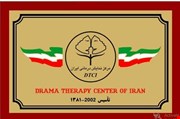




How Does Drama Therapy Work?
Drama therapy uses play, embodiment, projection, role, story, metaphor, empathy, distancing, witnessing, performance, and improvisation to help people make meaningful change.
A drama therapist first assesses a client's needs and then considers approaches that might best meet those needs. Drama therapy can take many forms depending on individual and group needs, skill and ability levels, interests, and therapeutic goals. Processes and techniques may include improvisations, theater games, storytelling, and enactment. Many drama therapists make use of text, performance, or ritual to enrich the therapeutic and creative process. The theoretical foundation of drama therapy lies in drama, theater, psychology, psychotherapy, anthropology, play, and interactive and creative processes.
Who Can Benefit from Drama Therapy?
Drama therapy is for everyone across the lifespan. You do not have to be “good” at acting to benefit from drama therapy!
Client populations may include persons recovering from addiction, dysfunctional families, developmentally disabled persons, abuse survivors, prison inmates, homeless persons, people with AIDS, older adults, behavioral health consumers, at-risk youth, and the general public.
Drama therapists work in a variety of mental health and community settings. Below are some possible examples of locations where drama therapists can be found:
Mental Health Clinics
Schools
Hospital Medical Units
Hospital Mental Health Units
Substance Abuse Treatment Centers
Adult Day Treatment Facilities
Correctional Facilities
Community Centers
After School Programs
Programs for Older Adults
College Counseling Centers
Programs for Persons with Disabilities
Businesses
Programs for Refugees and Immigrants
Shelters
Residential Facilities
Nursing Homes
Private Practice Settings
Corporations
Theaters
Housing Projects
Medical Schools
Training Organizations
What are the Outcomes?
Drama therapy is beneficial for individuals, families, and communities struggling with transition, loss, social stigmatization, isolation, and conflict. It is an effective option for the treatment and prevention of anxiety, depression, and addiction, among other conditions. Drama therapy can promote positive changes in mood, insight, and empathy, and it can facilitates healthy relationships.
We invite you to learn more about drama therapy research and the Drama Therapy Review.
What is the North American Drama Therapy Association (NADTA)?
The North American Drama Therapy Association (NADTA) was incorporated in 1979 to establish and uphold rigorous standards of professional competence for drama therapists. The organization maintains requirements that must be met to qualify as a registered drama therapist (RDT). NADTA promotes drama therapy through information and advocacy.
As a member organization of the National Coalition of Creative Arts Therapies Associations (NCCATA), the NADTA is aligned with professionals in the fields of art, music, dance, and poetry therapies, as well as group psychotherapy and psychodrama.
Learn more about the NADTA here.
Can I Attend a Conference or Workshop?
A good way to find out about drama therapy is to attend one of our national conferences. There you can see the work of drama therapists from across North America and throughout the world presenting many different types of drama therapy techniques used with different client populations. Conferences are open to the public and do not require previous exposure to drama therapy. You can also meet and network with professionals, talk with students about the schools they are attending, and go to workshops on such topics as alternative training, registry, and professional ethics. Watch our Events Page for information about the next conference.
If you are unable to attend a national conference, there may be regional conferences and workshops in your area. These will be listed on the Events Page as wellHow Does Drama Therapy Work?
Drama therapy uses play, embodiment, projection, role, story, metaphor, empathy, distancing, witnessing, performance, and improvisation to help people make meaningful change
A drama therapist first assesses a client's needs and then considers approaches that might best meet those needs. Drama therapy can take many forms depending on individual and group needs, skill and ability levels, interests, and therapeutic goals. Processes and techniques may include improvisations, theater games, storytelling, and enactment. Many drama therapists make use of text, performance, or ritual to enrich the therapeutic and creative process. The theoretical foundation of drama therapy lies in drama, theater, psychology, psychotherapy, anthropology, play, and interactive and creative processe
Who Can Benefit from Drama Thera
Drama therapy is for everyone across the lifespan. You do not have to be “good” at acting to benefit from drama therap
Client populations may include persons recovering from addiction, dysfunctional families, developmentally disabled persons, abuse survivors, prison inmates, homeless persons, people with AIDS, older adults, behavioral health consumers, at-risk youth, and the general publi
Drama therapists work in a variety of mental health and community settings. Below are some possible examples of locations where drama therapists can be foun
Mental Health Clini
Schoo
Hospital Medical Uni
Hospital Mental Health Uni
Substance Abuse Treatment Cente
Adult Day Treatment Faciliti
Correctional Faciliti
Community Cente
After School Progra
Programs for Older Adul
College Counseling Cente
Programs for Persons with Disabiliti
Business
Programs for Refugees and Immigran
Shelte
Residential Faciliti
Nursing Hom
Private Practice Settin
Corporatio
Theate
Housing Projec
Medical Schoo
Training Organizatin
What are the Outcom
Drama therapy is beneficial for individuals, families, and communities struggling with transition, loss, social stigmatization, isolation, and conflict. It is an effective option for the treatment and prevention of anxiety, depression, and addiction, among other conditions. Drama therapy can promote positive changes in mood, insight, and empathy, and it can facilitates healthy relationships
We invite you to learn more about drama therapy research and the Drama Therapy Revie
What is the North American Drama Therapy Association (NADT
The North American Drama Therapy Association (NADTA) was incorporated in 1979 to establish and uphold rigorous standards of professional competence for drama therapists. The organization maintains requirements that must be met to qualify as a registered drama therapist (RDT). NADTA promotes drama therapy through information and advocacy
As a member organization of the National Coalition of Creative Arts Therapies Associations (NCCATA), the NADTA is aligned with professionals in the fields of art, music, dance, and poetry therapies, as well as group psychotherapy and psychodram
Learn more about the NADTA her
Can I Attend a Conference or Worksh
A good way to find out about drama therapy is to attend one of our national conferences. There you can see the work of drama therapists from across North America and throughout the world presenting many different types of drama therapy techniques used with different client populations. Conferences are open to the public and do not require previous exposure to drama therapy. You can also meet and network with professionals, talk with students about the schools they are attending, and go to workshops on such topics as alternative training, registry, and professional ethics. Watch our Events Page for information about the next conferenc
If you are unable to attend a national conference, there may be regional conferences and workshops in your area. These will be listed on the Events Page as welle.op?e.a.. A)?w.. es?nslstsrsnsgsesesrstsesesrstsmsrsesesrststslscsd:c.y!py?s..
Cr:https://www.nadta.org/what-is-drama-therapy.html in
انجمن بین المللی دراماتراپی ایران
Iranian Psychodrama and Drama Therapy Association
DTCI (Drama therapy center of IRAN)
مرکزی غیر دولتی و خصوصی است که عضو موسس اتحادیه جهانی دراماتراپی WADTh است.
این مجموعه مرکزی تخصصی ، آموزشی ، توانمند سازی و مهارتی است.
تمامی خدمات و محصولات این سایت، حسب مورد دارای مجوزهای لازم از مراجع مربوطه می باشند و فعالیت های این سایت تابع قوانین و مقررات جمهوری اسلامی ایران است.



.jpg)